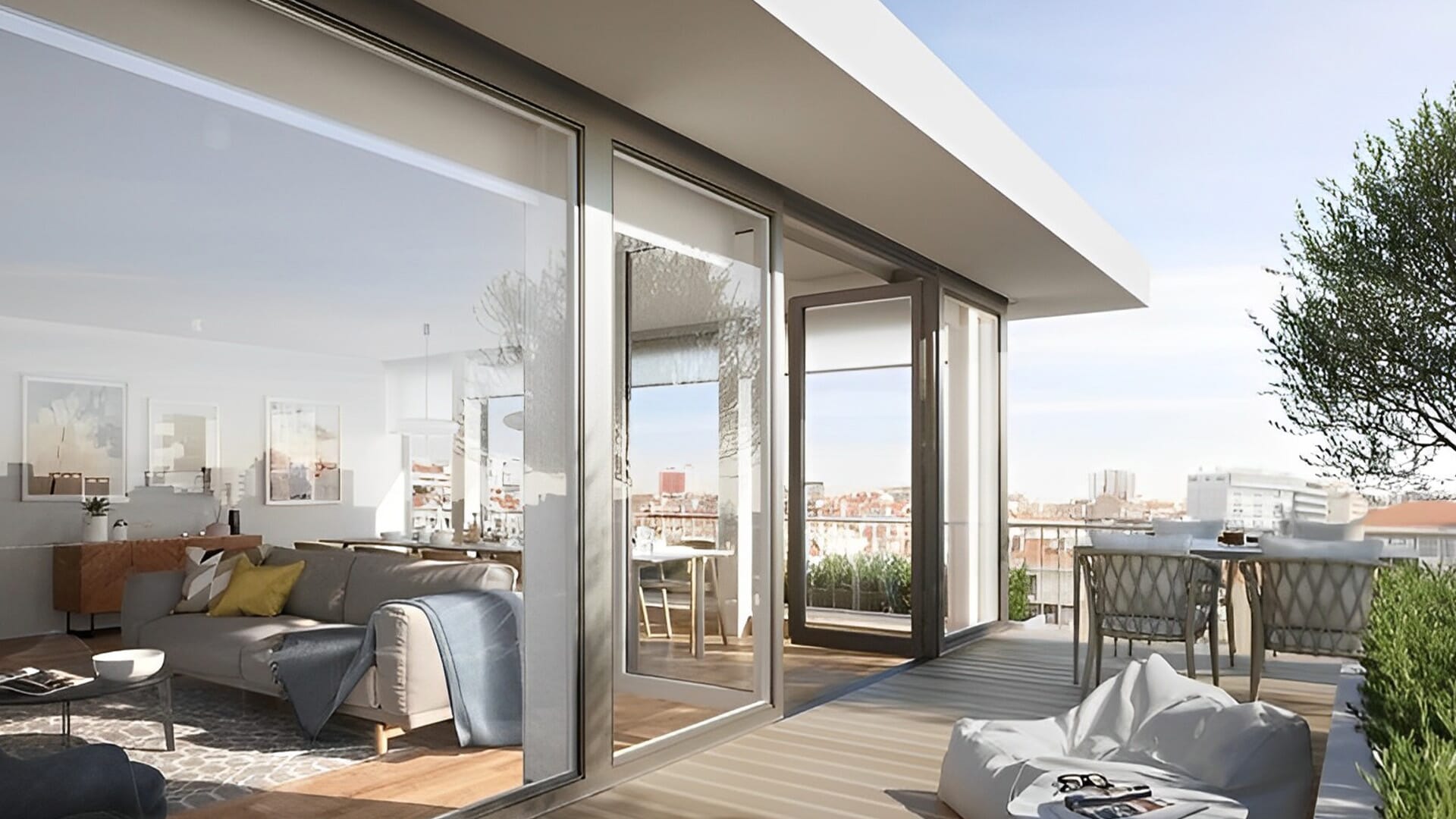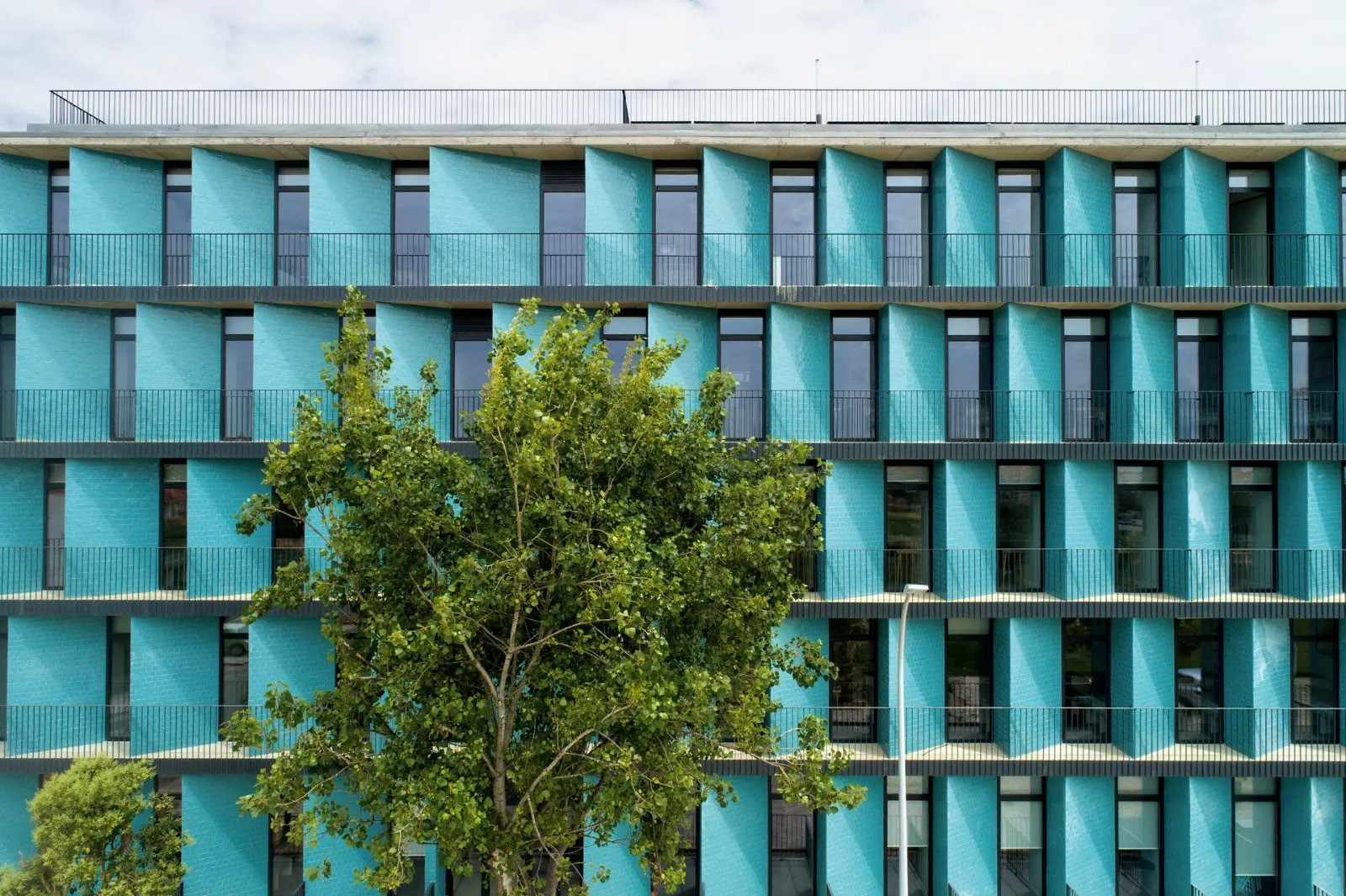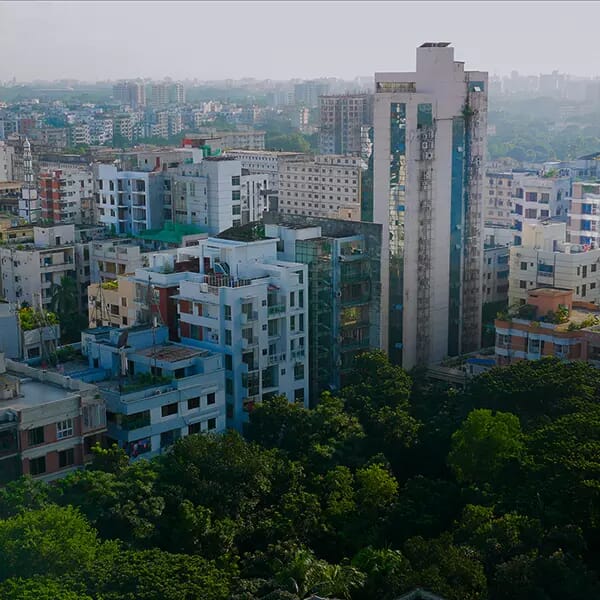 Source: Round Hill Capital
Source: Round Hill CapitalPortugal’s Rented Living Challenges and Opportunities
May 11, 2023Real Estate
Written by Sarah Garnett
On the 27th of April, GRI Club Portugal hosted a club meeting in partnership with Round Hill Capital at their office in Lisbon in order to discuss the Rented Living sector in the country. Alternative rented asset classes such as Co-Living, Multifamily, and Senior Living are considered up-and-coming in many European countries, and are attracting significant interest from investors.
A rise in inflation and interest rates resulted in a reduction in family spending power, which, in turn, caused a drop in property rises in Lisbon and Porto in 2022. This is in spite of the increase in new properties sold and the fall in future supply.
This is also despite an enormous scarcity of rented housing supply, which decreased by more than 40% in both cities, potentially due to the revival in tourism (and the conversion of residential units to short-stay rentals).
Due to the recent measures announced by the government, such as the ban on Airbnb and properties standing empty, many developers, investors and landlords have lost trust in the existing legal framework and fiscal policies that govern leasing in Portugal. Thus it is expected that rents will continue to increase given the growing demand and lack of supply.
The excessive taxes and inadequate building regulations will continue to contribute to the absence of a specific Build-to-Rent product for the privately rented sector, inevitably pushing rental prices upwards. According to the attendees, there are very few BTR players in the Portuguese market. The vast majority still consider themselves "curious".
Read about Portugal’s planned Mais Habitação program and investors’ views on the subject on GRI Hub.
The year 2022 brought positive results for alternative segments, which amounted to over 300 million euros. Alternative investments comprised 9% of Portugal’s investment volume in 2022, with only another 1% going to Residential investments. Portugal's rented living sector is seeing interest due to growing difficulties for many to buy. (Photo: Elxeneize | Envato)
Portugal's rented living sector is seeing interest due to growing difficulties for many to buy. (Photo: Elxeneize | Envato)
As some traditional assets become less attractive and some appear to lack in quality, this has led to the opening of the market to alternative BTR assets such as Multifamily and short-term rental options like Co-Living, Student Housing, and Senior Living.
These assets have become more mainstream, attracting the attention of investors with a more risk-averse profile, although some are still more developed than others. Short-term rental contracts additionally offer benefits in avoiding stifling rent raise restrictions currently being imposed by the government.
According to Savills in their end-of-year real estate report, this sale proves the success of alternative segments in Portuguese real estate. International investors who want to expand their portfolios to Portugal or new markets will be attracted to this type of asset.
The portfolio consists primarily of assets in the Lisbon Metropolitan Area and one in Porto. It also features an ESG focus to improve tenants' health, energy consumption, and well-being.

This transaction was one of the largest real estate purchases in the country in 2022, with a list dominated by Hospitality, Logistics, Retail and Offices.
After the purchase, Smart Studios was rebranded under Nido, the operating platform of Round Hill Capital. Operational efficiency will be improved, as well as resident service through the use of technology.
The integration of Smart Studios marks the next phase of Round Hill Capital’s strategy for the Purpose Built Student Accommodation scheme. João Pita, Head of Portugal, Round Hill Capital stated that “Investing in high quality, modern residential assets with good environmental credentials, located in leading European cities with strong supply/demand fundamentals, continues to be a focus for Round Hill Capital.”
“We will continue to look for opportunities to grow our portfolio both in Portugal and across Europe.”
Today, there is a huge difficulty due to land scarcity, with landbank management mentioned as a contributing challenge. In addition to this, attendees claimed that a Build–to-Sell project can pay three times what a BTR project would pay on land. BTR's tight margin does not allow this market to compete with BTS in Portugal.
Most participants lamented the high construction costs in the country, although some added that construction companies often have small profit margins also - the price of materials is the key obstacle in this case.
In November, construction costs of new houses were estimated to have increased by 11.7% year-on-year. This was down by 0.5 percentage points over October, and in January 2023, it was estimated that the cost increased 0.3 percentage points more than the previous month, demonstrating that these increases may be slowing.

The executives at the meeting also noted that greater equity is needed in residential financing. Some have noticed that nowadays there is a downpayment of up to 50% in order to demonstrate that the buyer has cash, which in previous years was far lower.
Regulating new projects is also very time-consuming in big cities. It was suggested that more satellite regions be worked on where the encouragement of city halls accelerates the bureaucratic and regulatory parts of projects. However, from the perspective of institutional investors, the concern when using this strategy is with the lack of liquidity in the asset class.
In 2021, JLL reported that 66% of units in the sector are privately owned, with a 4.3% coverage ratio of the population of those 65+. In their 2023 Marketbeat report for Portugal, Cushman & Wakefield also reported that Senior Living facilities have an occupancy rate of 92%, an increase of 2% from the previous year.
A very large movement of housing aimed at this age group can be seen in more remote regions. This can be an incentive for developers and investors of this asset class, particularly considering that the regulation is more agile in these areas.
Discuss the Build-to-Rent sector at Portugal GRI 2023, an event for heads of real estate and C-level executives taking place on May 30-31.
On the 27th of April, GRI Club Portugal hosted a club meeting in partnership with Round Hill Capital at their office in Lisbon in order to discuss the Rented Living sector in the country. Alternative rented asset classes such as Co-Living, Multifamily, and Senior Living are considered up-and-coming in many European countries, and are attracting significant interest from investors.
A rise in inflation and interest rates resulted in a reduction in family spending power, which, in turn, caused a drop in property rises in Lisbon and Porto in 2022. This is in spite of the increase in new properties sold and the fall in future supply.
This is also despite an enormous scarcity of rented housing supply, which decreased by more than 40% in both cities, potentially due to the revival in tourism (and the conversion of residential units to short-stay rentals).
Due to the recent measures announced by the government, such as the ban on Airbnb and properties standing empty, many developers, investors and landlords have lost trust in the existing legal framework and fiscal policies that govern leasing in Portugal. Thus it is expected that rents will continue to increase given the growing demand and lack of supply.
The excessive taxes and inadequate building regulations will continue to contribute to the absence of a specific Build-to-Rent product for the privately rented sector, inevitably pushing rental prices upwards. According to the attendees, there are very few BTR players in the Portuguese market. The vast majority still consider themselves "curious".
Read about Portugal’s planned Mais Habitação program and investors’ views on the subject on GRI Hub.
The year 2022 brought positive results for alternative segments, which amounted to over 300 million euros. Alternative investments comprised 9% of Portugal’s investment volume in 2022, with only another 1% going to Residential investments.
 Portugal's rented living sector is seeing interest due to growing difficulties for many to buy. (Photo: Elxeneize | Envato)
Portugal's rented living sector is seeing interest due to growing difficulties for many to buy. (Photo: Elxeneize | Envato)As some traditional assets become less attractive and some appear to lack in quality, this has led to the opening of the market to alternative BTR assets such as Multifamily and short-term rental options like Co-Living, Student Housing, and Senior Living.
These assets have become more mainstream, attracting the attention of investors with a more risk-averse profile, although some are still more developed than others. Short-term rental contracts additionally offer benefits in avoiding stifling rent raise restrictions currently being imposed by the government.
Round Hill Capital
In Q3 of 2022, the host of this GRI Club meeting, Round Hill Capital, purchased a large BTR portfolio for €200 million from Smart Studios, which remains with development responsibility.According to Savills in their end-of-year real estate report, this sale proves the success of alternative segments in Portuguese real estate. International investors who want to expand their portfolios to Portugal or new markets will be attracted to this type of asset.
The portfolio consists primarily of assets in the Lisbon Metropolitan Area and one in Porto. It also features an ESG focus to improve tenants' health, energy consumption, and well-being.

Round Hill Capital's purchase of alternative assets was one of the largest transactions last year. (Photo: Source: Nido)
This transaction was one of the largest real estate purchases in the country in 2022, with a list dominated by Hospitality, Logistics, Retail and Offices.
After the purchase, Smart Studios was rebranded under Nido, the operating platform of Round Hill Capital. Operational efficiency will be improved, as well as resident service through the use of technology.
The integration of Smart Studios marks the next phase of Round Hill Capital’s strategy for the Purpose Built Student Accommodation scheme. João Pita, Head of Portugal, Round Hill Capital stated that “Investing in high quality, modern residential assets with good environmental credentials, located in leading European cities with strong supply/demand fundamentals, continues to be a focus for Round Hill Capital.”
“We will continue to look for opportunities to grow our portfolio both in Portugal and across Europe.”
BTR Challenges in Portugal
The leading executives at the Rented Living Models meeting quoted “brick culture”, the preference of buying rather than renting in Portugal, as one of the key difficulties in climbing BTR in the country. In 2021, 78.3% of people owned their homes in the country, and there is still a strong preference in this area that might speak negatively to the long-term validity of the BTR structure.Today, there is a huge difficulty due to land scarcity, with landbank management mentioned as a contributing challenge. In addition to this, attendees claimed that a Build–to-Sell project can pay three times what a BTR project would pay on land. BTR's tight margin does not allow this market to compete with BTS in Portugal.
Most participants lamented the high construction costs in the country, although some added that construction companies often have small profit margins also - the price of materials is the key obstacle in this case.
In November, construction costs of new houses were estimated to have increased by 11.7% year-on-year. This was down by 0.5 percentage points over October, and in January 2023, it was estimated that the cost increased 0.3 percentage points more than the previous month, demonstrating that these increases may be slowing.

The executives at the meeting also noted that greater equity is needed in residential financing. Some have noticed that nowadays there is a downpayment of up to 50% in order to demonstrate that the buyer has cash, which in previous years was far lower.
Regulating new projects is also very time-consuming in big cities. It was suggested that more satellite regions be worked on where the encouragement of city halls accelerates the bureaucratic and regulatory parts of projects. However, from the perspective of institutional investors, the concern when using this strategy is with the lack of liquidity in the asset class.
Senior Living
Senior Living investments in the country have increased significantly in the last several years, more than doubling between 2018 and 2022, with renewed interest due to Portugal’s ageing population. The attractiveness for healthcare and in particular for senior living assets has been increasing over the last years only constrained by the lack of suitable and available product to invest in.In 2021, JLL reported that 66% of units in the sector are privately owned, with a 4.3% coverage ratio of the population of those 65+. In their 2023 Marketbeat report for Portugal, Cushman & Wakefield also reported that Senior Living facilities have an occupancy rate of 92%, an increase of 2% from the previous year.
A very large movement of housing aimed at this age group can be seen in more remote regions. This can be an incentive for developers and investors of this asset class, particularly considering that the regulation is more agile in these areas.
Discuss the Build-to-Rent sector at Portugal GRI 2023, an event for heads of real estate and C-level executives taking place on May 30-31.



